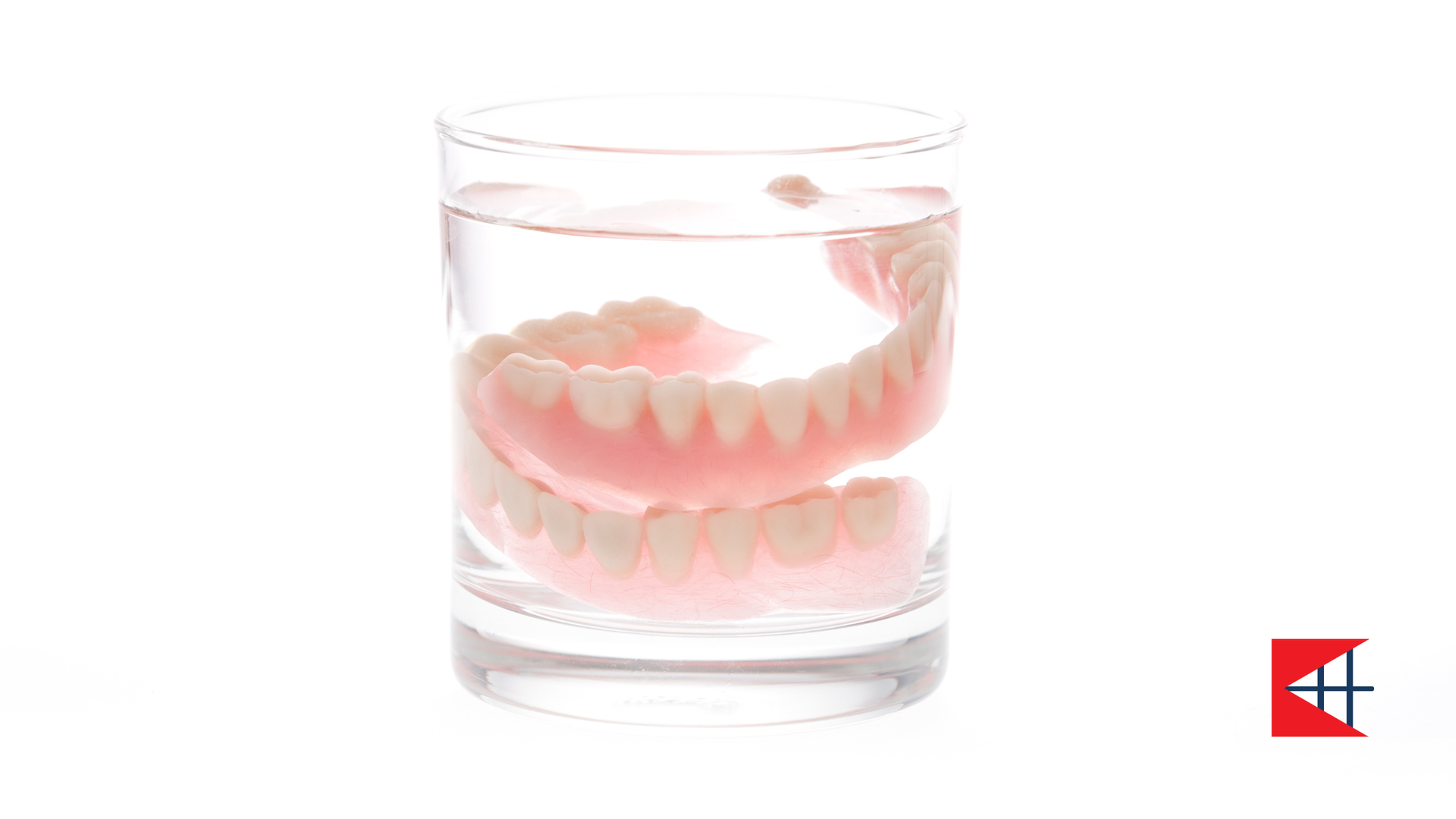A Complete Guide to Daily Denture Care and Long-Term Comfort

Source: Dr. Marketing
Wearing dentures brings back more than a smile, it restores confidence, speech, and the ability to enjoy favorite foods again. But many patients soon realize that dentures, like natural teeth, require care, attention, and ongoing maintenance. Questions often arise: How should dentures be cleaned? Can they be worn overnight? How can sore spots be avoided?
At Kuny Denture Office in Tisdale, we hear these questions every day, and we understand that adjusting to dentures takes time. Whether you are new to wearing dentures or have had them for years, understanding how to care for them properly can make all the difference in comfort, function, and long-term oral health.
The Foundation of Denture Care: Cleanliness and Consistency

The most important rule for denture care is simple: treat them with the same care you would give your natural teeth. Dentures may not decay, but the mouth that supports them still requires protection from bacteria and plaque. Daily cleaning removes food particles, prevents staining, and reduces the risk of infections like denture stomatitis, a common fungal condition caused by improper hygiene. The right technique matters:
- Brush dentures with a soft denture brush and non-abrasive cleanser twice a day.
- Rinse thoroughly with lukewarm water; never hot water, which can warp the material.
- Clean the gums, tongue, and roof of the mouth gently with a soft brush or gauze.
Clean dentures do more than look better; they feel better, too. Patients who maintain consistent hygiene often notice less irritation and improved breath freshness throughout the day.
Why Removing Dentures at Night Is Essential

One of the most common questions we receive is whether dentures can be worn overnight. The answer, almost always, is no. Sleeping in dentures prevents the soft tissues in the mouth from resting and increases the risk of inflammation, gum irritation, and fungal buildup. The mouth needs time to breathe and recover from the pressure dentures create during the day. At night, dentures should be removed, cleaned, and soaked in either water or a specialized cleaning solution. This prevents drying and maintains their shape. For many patients, this simple habit dramatically reduces sore spots and discomfort over time.
Fit, Comfort, and the Importance of Adjustments

Even the most perfectly crafted dentures may require adjustments after a few weeks or months of wear. This is because your mouth naturally changes over time; bone resorption, gum shrinkage, and bite pressure can all subtly alter how dentures sit. Signs that adjustments may be needed include:
- Persistent soreness or rubbing on the gums
- Dentures that move or click while talking or eating
- Difficulty keeping them in place without adhesive
At Kuny Denture Office in Tisdale, we recommend periodic denture evaluations every six to twelve months. Small refinements, such as a reline, can make a dramatic difference in comfort and stability. Patients are often surprised at how much more natural their dentures feel after a professional adjustment.
Can Poor Oral Hygiene Affect Denture Wearers?

Absolutely. Many believe that once natural teeth are gone, oral hygiene becomes less important; but that could not be further from the truth.
Even without teeth, bacteria can accumulate on the gums and tongue. This bacteria can lead to infections, bad breath, and irritation. Furthermore, poor denture hygiene allows yeast to grow under the appliance, leading to soreness and inflammation. Good oral hygiene promotes more than a clean mouth; it supports overall health. Studies have linked oral bacteria to systemic issues such as heart disease and respiratory infections. Keeping dentures and gums clean is a vital part of preventive care.
The Role of Professional Care

While daily home care forms the foundation of denture hygiene, professional maintenance ensures long-term success. During denture checkups, our team:
- Examines the fit and checks for wear or cracks
- Cleans and polishes the dentures using professional tools
- Assesses gum health and looks for early signs of irritation or infection
This proactive approach helps prevent discomfort and ensures the dentures continue to function at their best. Even a well-made denture needs regular evaluation to keep it that way.
The Right Way to Handle Staining and Odors
Another frequent concern among denture wearers is staining and odor buildup. Over time, exposure to coffee, tea, wine, or tobacco can alter the color of the denture surface. While minor discoloration is natural, it should not be ignored. Daily brushing and overnight soaking help prevent deep stains, but for more stubborn discoloration, professional cleaning is the safest option.
Avoid using whitening toothpaste, bleach, or abrasive powders; they can scratch or weaken the acrylic base. Instead, use mild denture cleaners or solutions specifically recommended by your denturist. Persistent odors can signal bacterial buildup. Cleaning both the dentures and the soft tissues beneath them daily keeps the mouth fresh and healthy.
When to Consider a Reline or Replacement
Over time, dentures that once fit perfectly can start to feel loose. This does not necessarily mean they need to be replaced immediately; often, a reline can solve the issue. However, dentures generally last five to ten years before replacement becomes necessary. Signs that it may be time for a new set include:
- Difficulty keeping dentures in place
- Cracks or worn areas in the material
- Frequent adjustments that no longer help
- Changes in facial structure or bite alignment
We guide each patient through the decision-making process, helping them understand whether a reline, repair, or replacement is most suitable.
Nutrition, Habits, and the Health of Your Mouth

Proper nutrition plays an often-overlooked role in oral health for denture wearers. A balanced diet rich in vitamins, minerals, and fiber supports gum health and tissue regeneration. Chewing fibrous foods like apples and carrots also helps keep the jaw active and the mouth muscles strong.
Avoid chewing on hard objects such as ice or pens, which can fracture dentures. Sticky foods should also be eaten carefully, as they can dislodge dentures or cause uneven pressure. Hydration is equally important. Saliva helps clean the mouth naturally and prevents dryness that can make wearing dentures uncomfortable.
Maintaining Confidence and Comfort Every Day
Beyond hygiene and adjustments, the emotional aspect of wearing dentures deserves attention. Many patients initially feel uncertain about how dentures will affect speech, social interactions, or their confidence. The key is patience and practice. Speaking aloud at home, reading in front of a mirror, and gradually reintroducing favorite foods can make the transition smoother. With time, dentures become second nature.
At Kuny Denture Office in Tisdale, we focus on ensuring each patient not only receives a great fit but also feels supported through the adjustment period. Our care extends beyond fabrication; It includes education, encouragement, and ongoing partnership in your oral health journey.
Partnering with Your Denturist for Lifelong Comfort

Choosing dentures is a significant step toward restoring your smile; but maintaining them properly ensures that comfort lasts for years. Working with a denturist who understands your unique oral structure makes all the difference between a denture that simply fits and one that truly feels natural.
At Kuny Denture Office in Tisdale, we take a personalized approach to denture care. From fabrication and adjustments to professional cleaning and education, every step is guided by your comfort and confidence. If you have questions about your dentures, experience soreness, or are due for a checkup, schedule an appointment with our team today. With expert care and the right habits, you can enjoy lasting comfort, function, and the confidence of a healthy smile.









